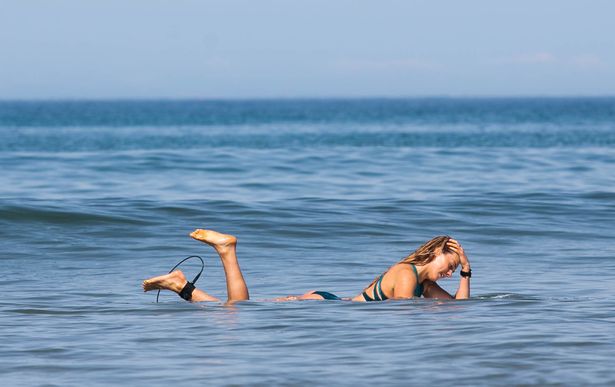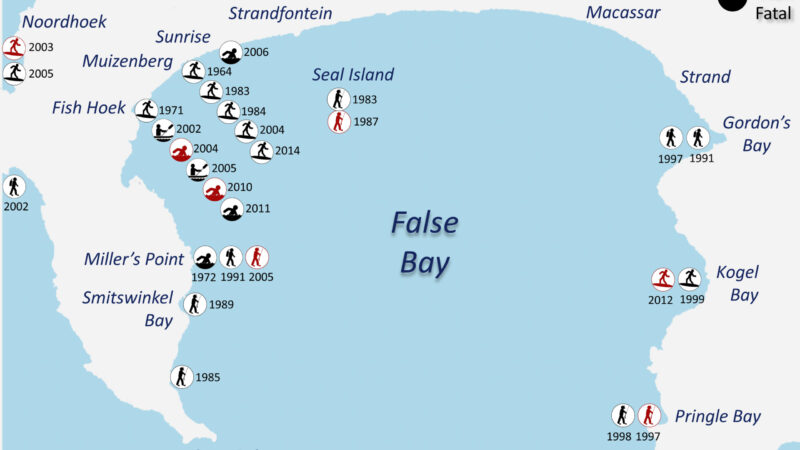The Environment Agency has warned of poor water quality at three Devon beaches.
With sea temperatures warm enough to not make you shiver when you dip your toe, thousands of people are expected to head to Devon’s wonderful coast for a swim.
Whether its paddling with the kids, surfing, bodyboarding or even a spot of wild swimming, a dip in the ocean is always invigorating.
But there are still some Devon beaches where getting in the water is simply not an good option – and there are some places you should never swim, however tempting it might be.
Before you hit the water, it’s worth doing a little research to see how safe the sea is and whether or not it is acceptable to swim there – but how do you know which ones are safe and which ones aren’t?
The collects water quality data each year from May to September, to ensure that designated bathing water sites on the coast and inland are safe and clean for swimming and other activities.
Annual ratings classify each site as excellent, good, sufficient or poor based on measurements taken over a period of up to four years.
In Devon there are three beaches where the Environment Agency advise against bathing. They are:
Wildersmouth Beach, Ilfracombe
The beach, located next to the Landmark Theatre on the town’s sea front, is made up of sand and shingle and is approximately 160 metres wide.
The water quality at Wildersmouth is deemed as poor by the Environment Agency and they advise against swimming here.
According to their website, the agency say the bathing water is subject to short term pollution caused when heavy rainfall washes faecal material into the sea from livestock, sewage and urban drainage via rivers and streams.
“The Environment Agency makes daily pollution risk forecasts based on rainfall patterns and will issue a pollution risk warning if heavy rainfall occurs to enable bathers to avoid periods of increased risk.
“The Environment Agency works to reduce the sources of this pollution through pollution prevention measures, work with agriculture and water companies.
“42 warnings advising against swimming due to an increase risk of short term pollution were issued in 2017 for Ilfracombe Wildersmouth bathing water.
“These warnings were issued because of the effects of heavy rain on the water quality.”
On the Environment Agency website it says: “At this site the risk of encountering reduced water quality increases after rainfall and typically returns to normal after 1-3 days.
Combe Martin beach
Combe Martin is a small resort, in a sheltered valley, at the western edge of Exmoor National Park on the north Devon coast.
The beach is sandy, approximately 110 metres wide and the River Umber is channelled across the beach at the west side.
The water quality at Combe Martin beach is deemed as poor by the Environment Agency and they advise against swimming here.
The agency says it issued 47 warnings advising against swimming at Combe Martin in 2017 due to short term pollution.
It said: “These warnings were issued because of the effects of heavy rain on the water quality.”
Instow
Instow, on the river Torridge estuary, is a popular spot with families and dog walkers.
Unlike Wildersmouth and Combe Martin, which are both designated bathing water sites with advice against bathing, Instow is no longer classified as a designated bathing spot.
The Environment Agency has issued permanent advice against bathing at Instow, meaning you should never swim there.
On the Environment Agency website, it says: “Instow is no longer designated as a bathing water under the Bathing Water Regulations 2013 because it is infeasible to meet the minimum, legally required bathing water quality standard at this location.
“Extensive investigations found that even with all available pollution prevention measures in place, bathing water quality cannot be improved to achieve the minimum standard of Sufficient required for all bathing waters.”
Sign up to our newsletters for all the latest near you
For more of the latest news, sign up to receive one of our daily or weekly newsletters.
Our teams at Cornwall Live, Devon Live and Plymouth Live are committed to bringing you the latest news, guiding you through this global pandemic and providing the stories that matter.
Our daily news email goes out every afternoon and offers a comprehensive overview of the day.
You can also sign up for the weekend report, to receive the top stories on a Saturday morning.
Or if you wanted something more specific, sign up to read our Truro, Exeter and Torbay newsletters.
Choose which newsletters apply to you from across our Devon and Cornwall titles – so that you can stay informed, stay home and stay safe.
How to reduce the risk of illness when open water swimming
Public Health England (PHE) has published advice about open water swimming, which means swimming in lakes, rivers, reservoirs and the sea.
The activity is growing in popularity in the UK but there have been outbreaks of gastrointestinal infections reported associated with open water swimming.
Open water is not considered to be of bathing quality as it can contain sewage, livestock contamination, and pollution from farming or industry.
Anyone can become unwell from swimming in open water as there will always be micro-organisms present.
The risk of becoming ill depends on various factors:
• children and novice swimmers are more likely to swallow water accidentally
• those with an impaired immune system are more susceptible to infection
• those swimming in estuarine areas are more likely to contract infections
• heavy rainfall can affect the amount of sewage in rivers due to overflow from drainage systems
Open water swimming can increase the risk of gastrointestinal infections (diarrhoea and/ or vomiting) as well as respiratory, skin, ear and eye infections.
Most symptoms of these illnesses, for example from organisms such as norovirus, giardia and cryptosporidium, will generally be mild.
However, there is also a risk of more severe infections caused by organisms such as E.coli O157 which may cause severe gastrointestinal illness and leptospirosis, which can cause liver and kidney problems.

Before you swim:
• cover cuts, scratches or sores with a waterproof plaster before swimming
• consider wearing appropriate protective clothing such as a wetsuit, gloves and/or protective footwear
While you are swimming:
• try to avoid swallowing and/or splashing water into your mouth
• observe local safety advice
After swimming:
• ensure you clean your hands thoroughly with soap and water after swimming and before handling/eating food
• thoroughly clean cuts or abrasions using soap and water
• handle your wetsuit with care after use. Rinse it with clean water as soon as is practicable after swimming. Clean with detergent and rinse as advised by the manufacturer. Always wash your hands with soap and water after handling or cleaning your wetsuit. Allow the suit to dry thoroughly before reuse





Recent Comments